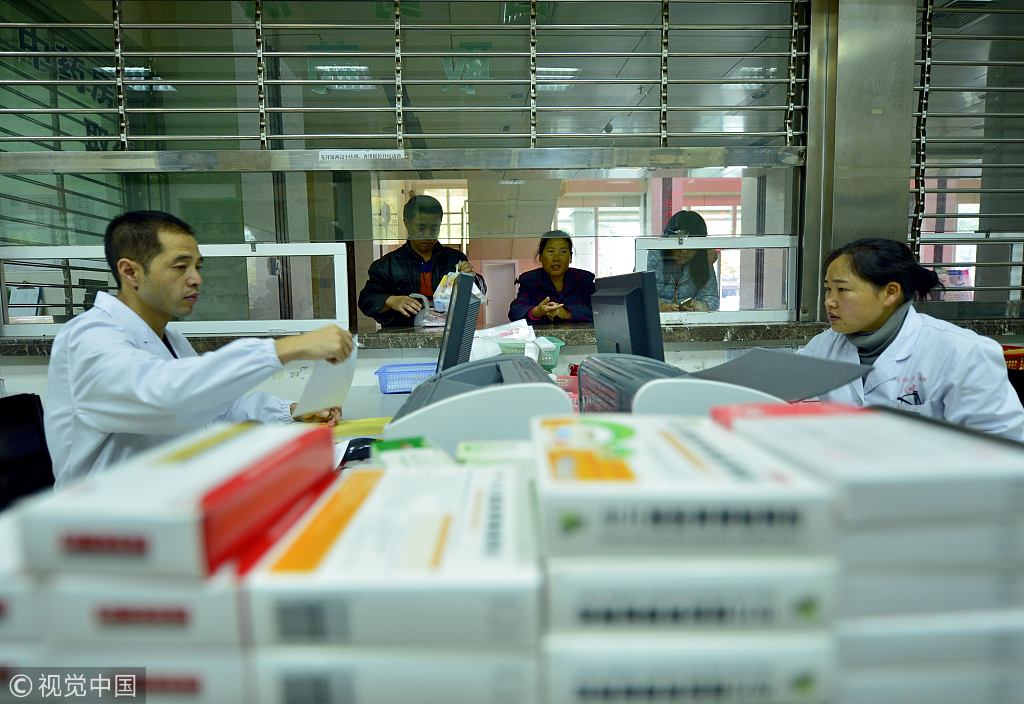Tariff changes aim to cut drug prices


China has decided to cut tariffs on a range of imported raw materials used in medicines, which industry analysts said signaled the government's heightened efforts to reduce high drug prices and improve people's healthcare, in addition to further opening up the economy.
The government will lower or remove import and export duties on 706 items starting from 2019, as part of a tariff adjustment package, with the duties on certain raw materials used for medicines removed altogether, the Ministry of Finance said in an online statement.
The medicines covered include a range of treatments, for example for cancers and rare diseases. Certain immunotherapy products, vaccines, genetic materials and transgenic organisms will also be exempt.
Shi Lichen, an industry analyst and founder of Beijing Dingchen Medical Consultancy, said the tariff reductions will reduce pharmaceutical companies' costs, and when combined with other policies and incentives, will motivate the firms to cut their drug prices.
"The government's moves certainly reduce the companies' costs, but it is up to the companies whether to reduce their drug prices and benefit the patients or not," he said.
"Companies want to make profits, and they will make their own calculations to decide what is best."
Shi cited examples of the State Medical Insurance Administration's recent reimbursement program negotiations with pharmaceutical companies.
Through three rounds of negotiations, 17 anti-cancer drugs were included in the national medical insurance list with significantly lowered prices in October.
Statistics from the administration showed that the prices dropped 56.7 percent on average, and most prices are lower than those in neighboring countries or regions.
Quan Ming, chief analyst for the pharmaceutical industry at Soochow Securities, said the elimination of the tariffs will certainly benefit patients as part of the government's integrated efforts to cut drug prices, which also include tax reduction, medical insurance negotiation, and the pilot group-buying program, she said.
However, Quan added, tariff costs only represent a very small proportion of medicines' sales prices, while medical insurance negotiations and group-buying are more efficient means to cut drug prices.
In May, China granted zero-tariff rates to imported cancer treatment drugs, as well as reducing the value added tax from the original 17 percent to 3 percent, in a bid to reduce cancer treatment costs and stimulate imports of new drugs.
Experts said the tariff and tax reductions provide more opportunities for drug prices to decrease, which will eventually benefit Chinese patients.
Zhu Hengpeng, a researcher in health policy and industry at the Chinese Academy of Social Sciences, estimated that tariff and tax reductions will make it feasible for pharmaceutical companies to trim cancer treatment medicine prices by about 8 percentage points on average. That would save a large amount of money in total, considering the large cancer patient population in China.
According to the Chinese Cancer Registry Annual Report 2017, about 4.29 million new cancer cases occur in China annually.
ASKCI Consulting Co estimated the cancer treatment drug market would reach more than 200 billion yuan ($29 billion) in scale in 2022.
Since May, pharmaceutical companies have lowered their prices on a number of medicines.
The price of Merck and Co's immunotherapy cancer drug Keytruda in China is about half the cost in the United States. The company also provides discounted and even free medicine for low-income patients.
Shi from Beijing Dingchen Medical Consultancy said the tariff exemptions on raw materials for some medicines is set to bolster domestic pharmaceutical companies' research and development ability, and eventually help to upgrade the domestic industry structure.
China exports many low-end medicine ingredients and raw materials, such as vitamin C and antibiotics, but relies heavily on imports for the high-end ones, according to Shi.
As the Chinese market becomes more open, trade and cooperation between Chinese and foreign companies will be boosted, which is mutually beneficial and provides Chinese companies with opportunities to learn from their foreign counterparts, he said.



































